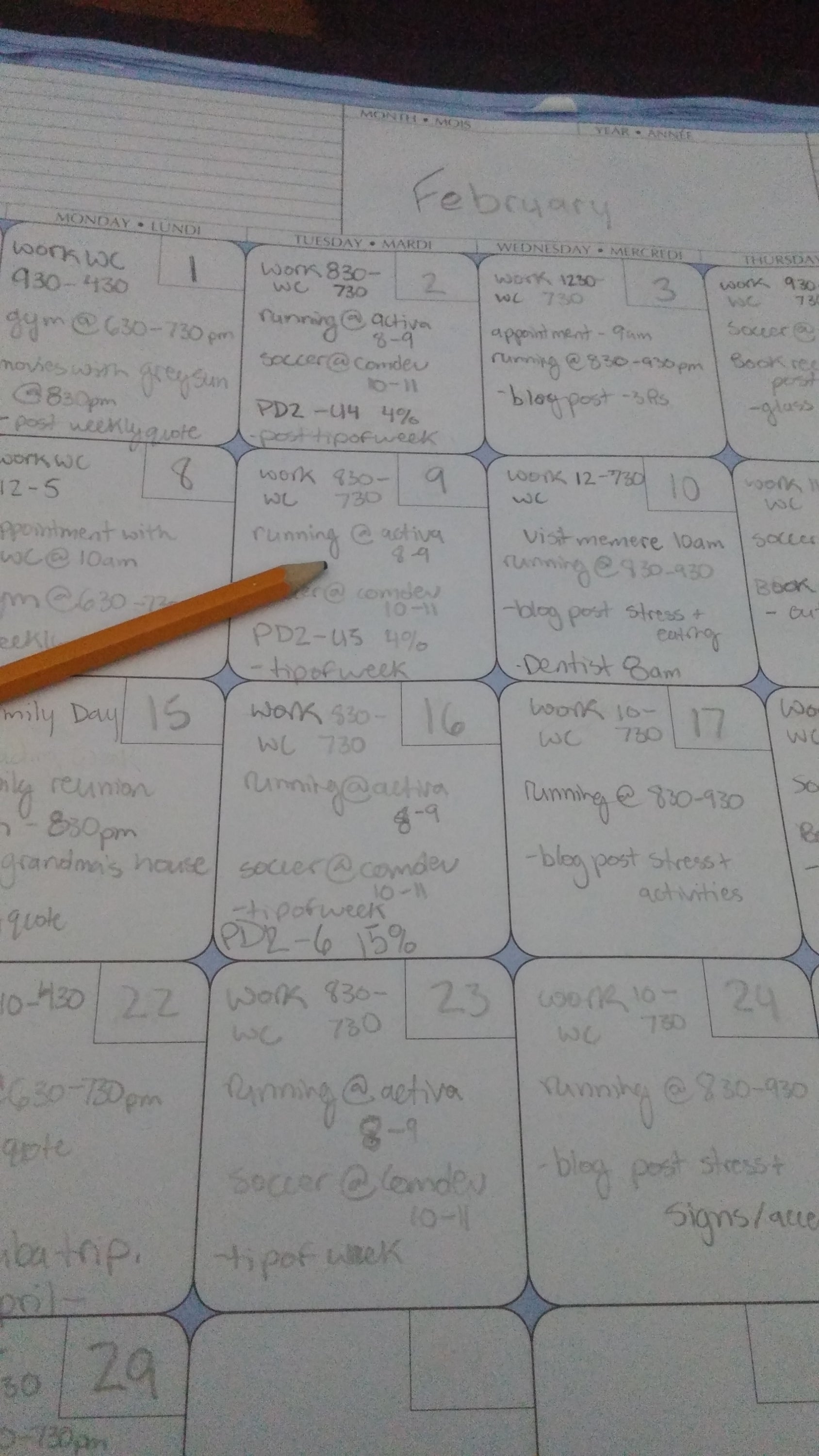I’m sure you know the stressful feeling when midterms are either just around the corner or already happening. As midterms come around the corner, it feels like students simultaneously take out their blinders, put them on and think “no distractions, only study”. Everyone becomes machinelike; you feel as if you can read the notes someone else studied the night before because they are etched so deep into their brain that you can see it in their eyes.

Image from: We Heart It
The first thought that comes to my mind when I hear about midterms is much like all of yours – once they start, they never end. There’s always that one midterm that happens a week before your first exam. Half the time I ask myself, “How is it possible for a class to have multiple MIDterms?” I didn’t know there was more than one MID in a course. Sometimes I ask, “How can a midterm be called a “MIDterm” if it is a week before the final?” That’s not half way through the semester!
After your thoughts of worrying about not surviving the term, speculating about the prof secretly trying to lower your average, or considering just sleeping and forgetting about midterms altogether go through your mind – and your internal screaming stops – you realize that the only way you will make it through this term is by managing your time and stress effectively.
That’s why I’m here! I will give you tips and resources on managing time and stress over the Winter term; who knows more about what you’re dealing with than another Waterloo student.
Before your brain explodes, let’s start with my favourite tip:
Just like many of you, I struggle with balancing classes, studying, and papers; working out and playing sports; having a social life and time to myself; part-time jobs, volunteering and clubs; eating; and sleeping. The main issue always seems to be doing too much and not having enough time.

Image from: The Odyssey Online
The best advice for managing your Doing Too Much Stress (DTMS) is to evaluate what you do in your daily life and decide what the top 8 most important things are at that moment. However, balancing what will help you succeed with what will keep you sane is the key. Usually the list changes every few weeks depending on the different events that come up, but there are many things that carry over each time. (I try to make my list and schedule every two weeks but a month works too).
Usually the list consists of:
- University courses
- Papers/tests happening within your set time period (+ time to study/write)
- Sleeping at least 6 hours each night (It’s supposed to be 8, but let’s be reasonable)
- Eating (+ time to cook it/clean up)
- Work
- Volunteering/Clubs
- Social life and time for yourself (be reasonable, note any big events you are attending)
- Sports and fitness (List repeating game days and practices, including times and where)
Now that you’re done your list, put everything onto one schedule.

Image from: Cheyenne LePage
You can now track when you have spare time for other things; having a separate calendar for everything can get confusing and you might accidentally double-book. Write with a pencil so you can correct items if details change or new plans come up.
For events you must drive to, figure out how long it takes to get there and add 15 minutes. This allows you to prepare, for traffic and settle in before the event starts.

Image from: Search Engine Roundtable
Lastly, in respect to school assignments and tests, write the percentage that each is worth beside the title on the schedule so you can see how much effort you need to put into it.
The other effective way to manage your DTMS, especially for those who don’t like scheduling, is to be reasonable!
For example, think about the scenario written below and decide what you would do in that situation before moving on.
Your friend might be having a party this weekend but you have two midterms this week, each worth 25 percent of your grade on Tuesday and Thursday, and you haven’t started studying for either…Can you really cover 4 weeks of chapters and lectures for two classes within that time frame, get the grade you need, and still go out?
If you go to said party, yeah you might have a great time for the eight hours you’re there. However, think about how you will feel the following Monday when you have to study for two midterms. But don’t forget you also have to go to your classes too because there’s a lecture on a topic you don’t understand and a tutorial where you have to submit a paper. Was going to that party really a good choice?
The most effective approach to reducing stress is looking at what you absolutely have to do, planning for what is coming up, and looking at what is more important in the long run. Mostly, it depends on how well you can be the three Rs: reasonable, responsible, and rational.
If you would like to discuss more ideas around the topic of coping with midterms, doing too much, and feeling stressed, feel free to comment on our Twitter feed @UWaterlooWC or in the comments below!
Thanks for reading. Wait until next time for another managing stress and surviving university tip.
Cheyenne LePage
Stress coping resources available on campus:
Campus Counseling
Student Success Office
Writing Centre
Your academic advisor: check out your faculty website under “staff”
Other KW resources:
For resources available specifically in the Kitchener-Waterloo Region, phone numbers and addresses, in regards to mental health please click here